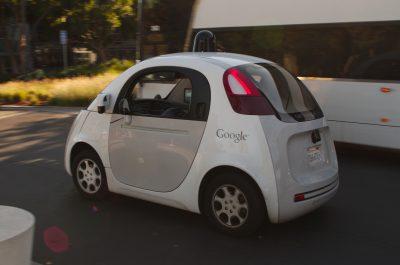
The City of Boston will partner with nuTonomy, a leading developer of self-driving vehicle software, to begin testing autonomous cars by the end of 2016, Mayor Martin Walsh announced in a press release last Monday.
Karl Iagnemma and Emilio Frazzoli, the founders of nuTonomy, said they conducted their research on self-driving cars at the Massachusetts Institute of Technology and will test their “Renault Zoe” electric vehicle in the Raymond L. Flynn Marine Park in Boston’s Seaport District, according to the release.
While nuTonomy is Boston’s first partnership for on-street self-driving vehicle testing, according to the release, the city is also seeking other companies for additional on-street pilots.
Eric Andrus, the spokesperson for nuTonomy, wrote in an email to The Daily Free Press that nuTonomy plans to improve their design by continuing their test drives on the Boston roads.
“The testing in Boston will enable nuTonomy to build on the knowledge it has gained from the public road tests and public trials it has been conducting in Singapore’s one-north business district,” he wrote.
Andrus said nuTonomy aims to integrate its software with vehicle platforms provided by a partner to launch a “self-driving mobility-on-demand” service in Singapore in 2018.
“By removing the driver, we can radically reduce the cost of our transportation service, while increasing safety and efficiency,” he wrote.
Andrus said self-driving cars could also make Boston’s roads safer once a mobility-on-demand service becomes a transportation option.
“Autonomous vehicles promise to dramatically reduce fatalities and injuries,” Andrus wrote.
This service will provide efficient access to transportation for passengers who can’t drive independently, including elderly, disabled and blind people, Andrus said.
Marilyn Rea Beyer, the spokesperson for the Perkins School for the Blind, said autonomous vehicles would provide blind people with a sense of freedom.
“In speaking with my colleagues who are blind, I have come to understand that autonomous vehicles would represent the ultimate independent transportation to them,” she said. “Whether it was a point-to-point, or on-demand type of service, the ability to leave from a location of their choosing to go to a designated location of their choosing would be tremendously liberating.”
Beyer said the work nuTonomy is doing gives the blind community hope for safe, self-determining travel.
“Everyone here, from the top level of our leadership to our students, applaud the persistence and care and attention that innovators are putting into solving the autonomous vehicle puzzle,” she said.
Boston residents said they understand the benefits of self-driving cars for people with disabilities, but still feel apprehensive about this type of technology on the roads.
Lisa Rodriguez, 21, of Brighton, said she feels cars are safest when a person controls the wheel, as opposed to a machine.
“[Blind people] still need to have someone next to them to guide them,” she said. “They shouldn’t be by themselves in the car.”
Angela Lemieux, 34, of Brighton, said the concept of self-driving cars is new to her, and she doesn’t yet feel comfortable with the idea.
“I still think it’s kind of scary,” she said. “I haven’t been exposed to it enough to really be able to trust it, regardless of the ways it might be used.”
Others expressed support for the idea of self-driving cars.
Chris Potter, 22, of Fenway, said self-driving cars are safe and beneficial to everyone, not just blind people.
“The thing about self-driving cars is they’re actually a lot safer than people realize,” he said. “I definitely think the industry is taking an overly cautious approach to it. It’ll benefit us all greatly in the end.”




